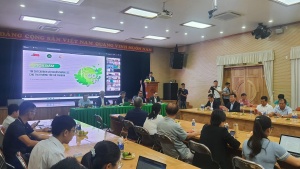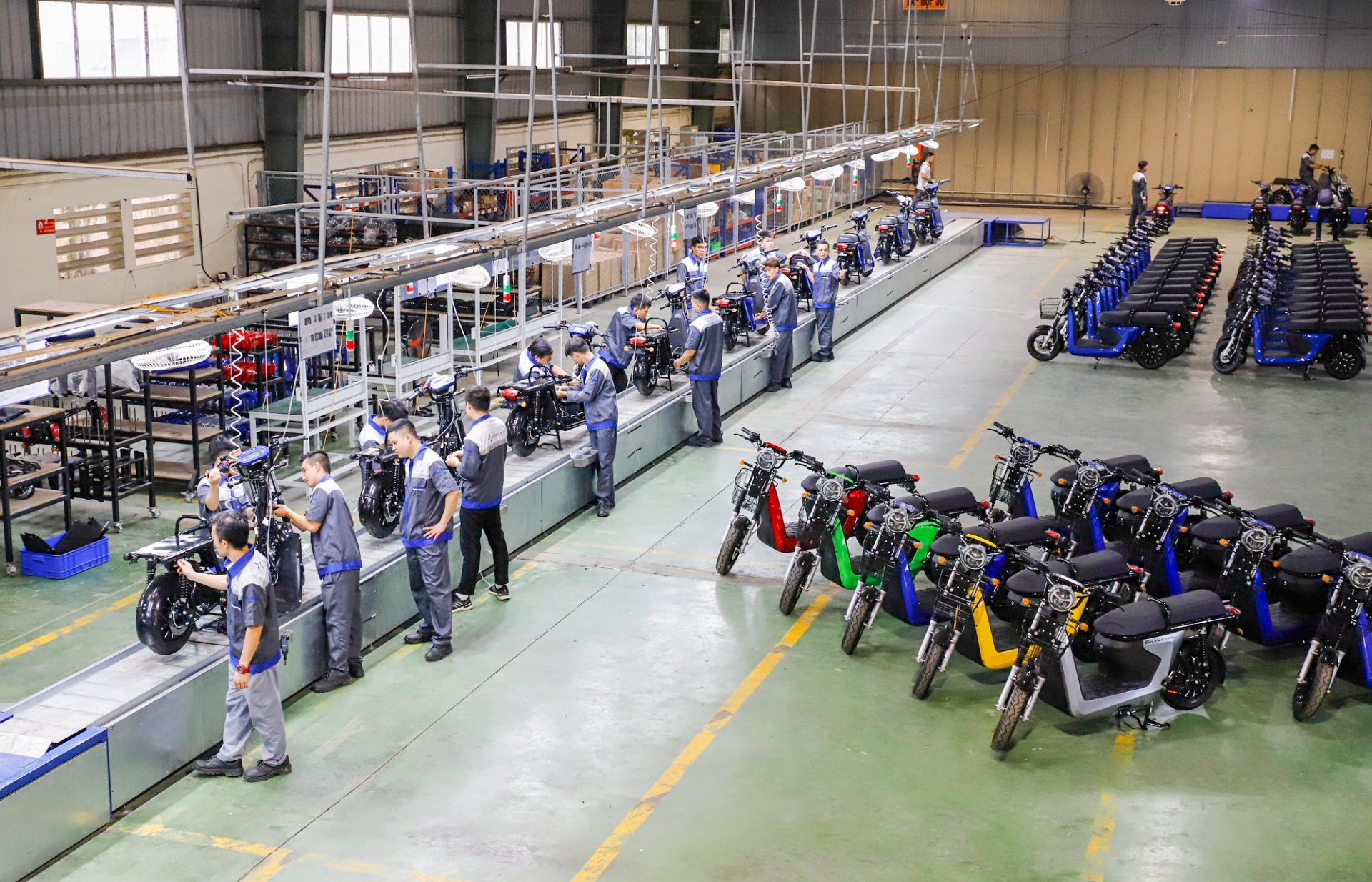Suitable workforce craved for carbon credit market
 |
| The number of experts on carbon credits in Vietnam is currently modest in relative terms, Photo: Shutterstock |
According to experts at a seminar on the issue in Ho Chi Minh City in mid-August, the number of carbon credit experts is still modest compared to Vietnam’s great demand.
Dr. Le Hoang The, director of The VOS Company, said that based on its terrain advantage stretching across 16 degrees of latitude, Vietnam boasts potential of about five billion carbon credits. The country not only has large reserves but also can develop organic carbon.
“However, according to statistics, Vietnam needs about 150,000 professional workers, with in-depth knowledge of appraisal mechanisms, preparation of relevant documents, declaration and evaluation of carbon credits. In particular, training of carbon appraisers with expertise and international certification is an important link to help operate the carbon credit market,” The said.
According to Dr. Nguyen Trung Dong, principal of the School of Public Policy and Rural Development, carbon neutrality will be a future trend to ensure the goal of achieving net-zero emissions in 2050.
“Although the potential for developing the carbon credit market in Vietnam is great, the development faces many difficulties because this is a new sector in Vietnam. Therefore, it is necessary to have training activities to meet the regulations of this market and effectively exploit the capacity to reduce emissions,” Dong said at the seminar.
Among recent related policies, there are those allowing carbon credit transactions to encourage and promote the participation of businesses and communities in reducing greenhouse gas (GHG) emissions.
“In the carbon credit market, each field has its own characteristics. In fact, the number of experts on carbon credits is still relatively modest because Vietnam has only just joined this market, so related resources and technology are mostly dependent on international sources. Therefore, training and improving understanding of the ability to absorb and reduce carbon emissions is extremely needed,” Dong added.
Dr. Tran Minh Hai, vice principal of the School of Public Policy and Rural Development, stated that in order to develop human resources for the market, the school has currently cooperated with a number of units to provide training human resources on carbon credits.
However, most of the related resources and technology are completely dependent on the international market.
“Meanwhile, some organisations and individuals in remote areas also need to access the carbon credit market, but training costs and on-site supply capacity are limited. This puts pressure on public scientific research facilities and institutes, especially in the context of Vietnam aiming to neutralise and reduce emissions by 2050,” Hai said.
“Therefore, businesses that proactively use human resources for the market will have advantages when participating in the green economy, and selling carbon credits in particular,” Hai stated.
Prof. Dr. Vo Xuan Vinh from the University of Economics Ho Chi Minh City added that research institutes need to participate in the international training network on carbon credits to support the government in implementing green growth policies.
“Training programmes and services supporting the carbon credit market not only provide knowledge and skills but also help ensure Vietnam’s effective participation in this market,” Vinh said.
Therefore, he added, continuing to invest in training, expanding international cooperation, and developing related services is necessary for Vietnam to both fulfill its international commitments and effectively exploit opportunities from carbon credit market.
“Participating in networks and training programmes of international organisations will help Vietnam improve knowledge and establish strategic partnerships,” he added.
Carbon credits are certificates that can be traded and represent the right to emit an amount of CO2 or another amount of GHG converted to CO2 equivalent. One credit is equivalent to one tonne of CO2 or one tonne of CO2 converted from other materials. According to the roadmap, the domestic carbon market will be piloted from 2025 and officially operated from 2028.
In 2023, for the first time in Vietnam, the forestry sector successfully sold 10.3 million forest carbon credits through the World Bank, earning $51.5 million.
The transfer and trade of forest carbon credits will mobilise additional financial resources to reinvest in forests, create jobs, increase income, and improve livelihoods for forest owners and rural people, protect biodiversity and protect the environment, according to experts from the University of Economics in Ho Chi Minh City.
 | Vietnam needs skilled workers to drive carbon credit market growth Industry experts have emphasised the critical importance of building a skilled workforce and establishing a strong legal framework as Vietnam’s emerging carbon credit market gains momentum. |
 | First pilot electric vehicle carbon credit project in Vietnam Selex Smart Electric Vehicle JSC (Selex Motors) has partnered with PoA Carbon Management JSC (PoA Carbon) to implement a pilot project to develop carbon credits for electric vehicles. |
 | Key components can provide basis for carbon credit market Companies in Vietnam must begin to report their carbon inventory and participate in carbon credit exchanges. Lam Nguyen Hoang Thao, senior associate at Russin & Vecchi, provides deep analysis of the issue. |
 | Investment in Vietnam’s carbon market: the opportunities and the challenges The growing demand for carbon credits ranks high in Vietnam. As global awareness and regulatory pressures on climate change increase, the demand for carbon credits is expected to rise. |
What the stars mean:
★ Poor ★ ★ Promising ★★★ Good ★★★★ Very good ★★★★★ Exceptional
Related Contents
Latest News
More News
- $100 million initiative launched to protect forests and boost rural incomes (January 30, 2026 | 15:18)
- Trung Nam-Sideros River consortium wins bid for LNG venture (January 30, 2026 | 11:16)
- Vietnam moves towards market-based fuel management with E10 rollout (January 30, 2026 | 11:10)
- Envision Energy, REE Group partner on 128MW wind projects (January 30, 2026 | 10:58)
- Vingroup consults on carbon credits for electric vehicle charging network (January 28, 2026 | 11:04)
- Bac Ai Pumped Storage Hydropower Plant to enter peak construction phase (January 27, 2026 | 08:00)
- ASEAN could scale up sustainable aviation fuel by 2050 (January 24, 2026 | 10:19)
- 64,000 hectares of sea allocated for offshore wind surveys (January 22, 2026 | 20:23)
- EVN secures financing for Quang Trach II LNG power plant (January 17, 2026 | 15:55)
- PC1 teams up with DENZAI on regional wind projects (January 16, 2026 | 21:18)

 Tag:
Tag:




















 Mobile Version
Mobile Version